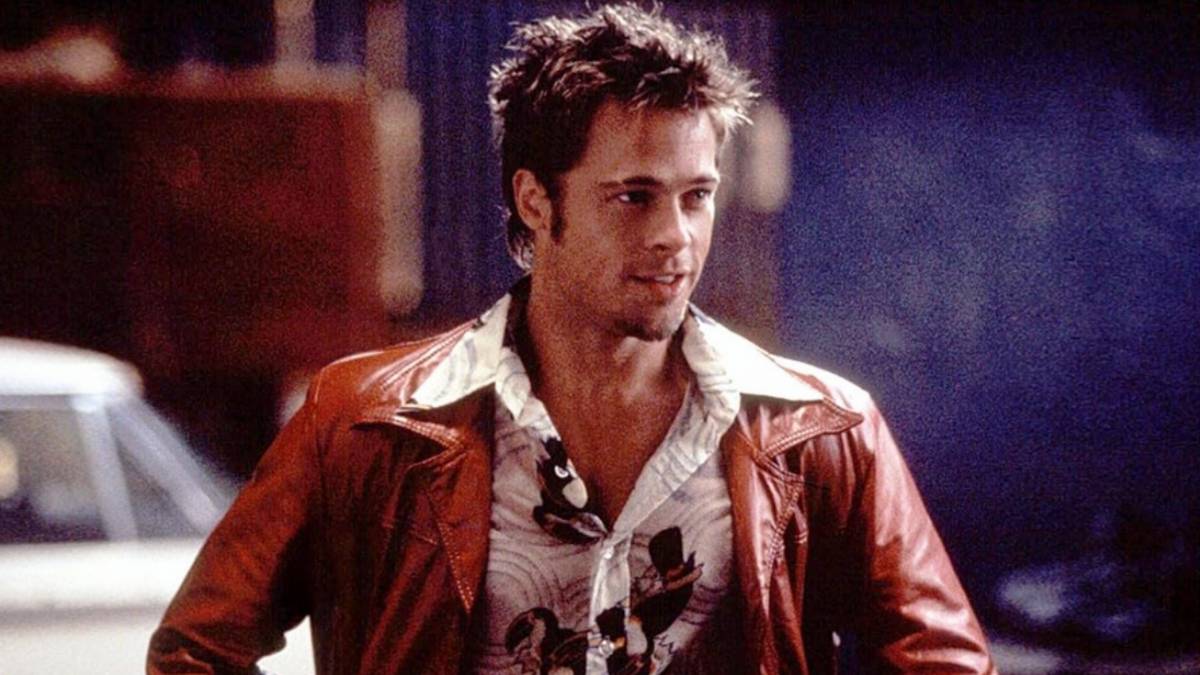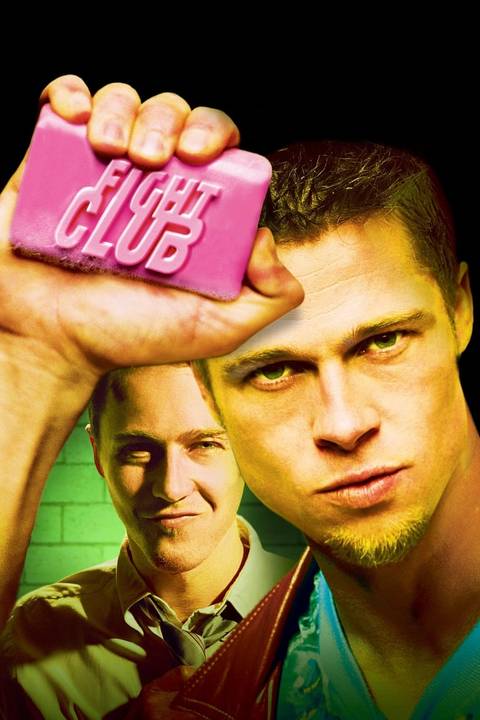
All 3 David Fincher and Brad Pitt Movies, Ranked
Though they might not be as prolific a director + actor duo as Martin Scorsese and Robert De Niro, or John Ford and John Wayne, the pairing of David Fincher and Brad Pitt is still a noteworthy one. Fincher has made some of his best films without Pitt as an actor, sure (see The Social Network and Gone Girl), while Pitt has been in many great movies that didn’t have Fincher as the director (see Inglourious Basterds and The Tree of Life), but both have done some of their best work when, you know, working together. The first of their movies was 30 years ago now, and that was a film that re-established David Fincher as a great filmmaker following the bold but messy Alien 3, and it also reinvigorated Pitt’s passion for acting. And the duo are relevant once more, since David Fincher is set to direct the sequel to Once Upon a Time in Hollywood, The Adventures of Cliff Booth.
Brad Pitt is attached to the project as its star, reprising the role of Cliff Booth, who was last seen in Once Upon a Time in Hollywood. Quentin Tarantino directed that 2019 film, and has done the screenplay for The Adventures of Cliff Booth, but it’s the first film in a while to be written by him without Tarantino also taking on the role of director. But it shows that all this time on from 1995, David Fincher and Brad Pitt still see potential in working together, and all their collaborations to date have indeed been interesting, spanning the range from very good to all-time great quality-wise. That makes ranking them all pretty difficult, but so long as you approach the ranking below knowing that something being in last place, for present purposes, isn’t the same thing as suggesting that movie’s bad, then it’s all good. Well, it’s all good in more ways than one. These movies are all, at the very least, good. And some are great. That’s just what happens when a director + actor duo work well together, and seem willing to emphasize quality over quantity when it comes to their collaborations.
3
‘The Curious Case of Benjamin Button’ (2008)
Most David Fincher movies are psychological thrillers/dramas, or mystery movies of some kind, with The Curious Case of Benjamin Button being a bit of an outlier, since this one’s more sentimental than his usual fare, it counts as something of a fantasy movie, and it’s also pretty heavy on romance. It also has a bold concept that was first explored in the rather brief F. Scott Fitzgerald story of the same name, with Fincher taking the premise and expanding it into something of an epic. In both cases, The Curious Case of Benjamin Button is about a person who’s born as an old man, and then ages backwards throughout their life, ending up an infant in their “old age.” And Brad Pitt plays this titular character at various stages of his life, sometimes with the assistance of de-aging technology or prosthetics, and there were also six other actors credited with playing Benjamin Button in one way or another, at different stages of his life (Robert Towers, Peter Donald Badalamenti II, Tom Everett, Spencer Daniels, Chandler Canterbury, and Charles Henry Wyson), necessitated because of all the time covered throughout the film, as it begins in 1918 and ends in the 2000s. But Pitt still feels like the central star, no matter what, sometimes because of the creative special effects employed.
And, in the end, the technical side of The Curious Case of Benjamin Button is what ends up impressing the most. It’s not a super old movie, but 2008 is far back enough now that some movies that looked great then might not look as phenomenal now… but this one largely holds up. The source material was not long, but the concept is a grand one, and the film probably needed a director as confident as David Fincher to make it work as well as it does. Pitt and co-star Cate Blanchett were also up to the difficult task at hand, and did great work, even if the entire film still has some problems. Like, you should feel the length, to some extent, with a movie that’s long and decades-spanning, but pacing does feel like a slight issue at certain points in The Curious Case of Benjamin Button. Also, while emotional, it doesn’t hit quite as hard as it probably wants to on a tearjerker front, but that’s also a bit of a nitpick. This is still moving in places, and technically dazzling, enough so that it feels like one of the more impressive epics (or near-epics) of its era. Also, there’s a great cast here with some actors who became a bit more famous/well-known in the years following the release of The Curious Case of Benjamin Button, including Elle Fanning, Mahershala Ali, and Jared Harris.
2
‘Se7en’ (1995)
As hinted at before, there was a movie that came out in 1995 which was monumental for the careers of both David Fincher and Brad Pitt, and that movie was Se7en. This is an incredibly dark crime movie that’s also heavy on mystery and thriller elements, becoming harrowing enough at times to also occasionally feel like a horror movie. It’s about the kind of thing that lots of crime/mystery movies are about: the hunt for a serial killer at large. But this person’s unique, seeing as they’re basing all their murders on the various deadly sins, and seems to be an unnerving number of steps ahead of the detectives in pursuit at any given moment. Brad Pitt plays a young detective, and he’s paired with an older one, played by Morgan Freeman, and both find themselves getting wrapped up in the whole grisly case even more than they could’ve imagined.
Se7en is a movie that gets better as it goes along, and the more memorable stuff happens closer to the end of the film than the start.
Is that saying too much? Maybe you’re allowed to say quite a lot, since Se7en is 30 years old, and so if you’re older than that, you’ve technically had three decades to watch this movie. And even if you’re younger than that, or you’ve only been old enough to watch Se7en for a decade, let’s say (since younger viewers are best staying away from a movie like this), well, then you’ve still had some time to find out what all the hype was about. Put gently, Se7en is a movie that gets better as it goes along, and the more memorable stuff happens closer to the end of the film than the start. But that’s kind of what you want out of a movie that leans heavily into the mystery genre, and Se7en is one hell of a police procedural/mystery movie. It does the whole neo-noir thing incredibly well, Fincher directed it pretty much perfectly, and both Pitt and Freeman are near their respective career-bests here (well, Pitt infamously overacts at some points, but the level of intensity he brings does make sense, considering some of the stuff that goes down narratively).
1
‘Fight Club’ (1999)
Though it’s not really a crime movie in the same way Se7en is, Fight Club proves to be a similarly difficult movie to talk about, since it’s all about being dark, subversive, and surprising. It’s really good at doing all those things, which is why it deserves to be crowned the best of the Fincher + Pitt movies, but it’s hard to talk about. And that’s kind of baked into the movie, because the fight club that gets formed is secretive and underground, and those who belong to the group are told they can’t talk about it. So it feels fitting to talk around Fight Club, rather than about Fight Club. It’s a movie with a listless man at its center, played by Edward Norton, and he’s so bland and unattached from the world around him that he’s only known as the Narrator. But he finds purpose in life after meeting Pitt’s character, who’s a mysterious man named Tyler Durden, and with Tyler, he creates a fight club, which then spirals out of control and becomes something of a revolutionary and/or terrorist organization.
It’s about fighting and violence on one hand, but Fight Club is not an action movie. Instead, it’s more of a psychological thriller, a surreal drama, and also a darkly comedic satire, too, with the film having a great deal to say about middle-class life and masculinity in the 1990s. It’s the sort of movie that’s overwhelming and kind of exciting the first time you watch it, and then the second time around, you do get to appreciate a whole lot more, and you’ll probably be more likely to see what it is that Fight Club is ultimately going for and trying to say. It’s an explosion of style and ideas, but as something that’s both maximalist and intimate (in the sense that it really spends a lot of time in the heads of its main characters), it really works and feels unique. Some people like it for different reasons than others, so it’s the kind of film where even its fans might be divided in terms of what they like or think it’s going for, but movies that are able to spark such discussions should be celebrated. Fight Club is a lot, and it’s also weirdly approachable and entertaining. You might not wholly love everything you find here, but you will feel something strong about the movie as a whole; that’s pretty much a guarantee.






